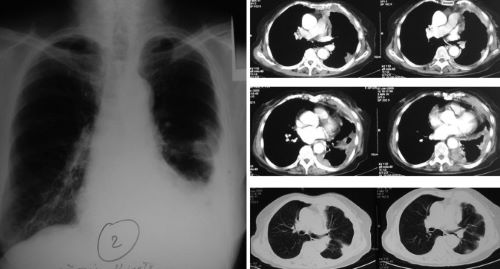

Did you know that there is only about one mesothelioma case diagnosed per 110,000 people each year? This rare and aggressive cancer is linked to asbestos exposure and it often brings profound challenges for patients and their loved ones.
Family members often face financial difficulty because of treatment costs, caregiving responsibilities, and lost income, all while dealing with the emotional and physical toll of a loved one’s illness. While compensation for mesothelioma may include burial costs, medical bills, and pain and suffering, it can be hard to hold negligent parties responsible for it.
When a case is successful, family members can receive an average settlement amount of between $1 million and $11.4 million, while court awards can reach $5 million to $11 million or more, according to mesotheliomahope.com.
If you or your loved one is fighting this type of cancer, you must know the eligibility requirements and the claims process so you can receive the financial aid you truly need.
Types of Mesothelioma Compensation
There are different types of compensation available to mesothelioma patients and their families. These compensations include:
Legal settlements
To avoid trial, asbestos exposure companies often settle with victims and their families. Mesothelioma families can get financial relief and a faster resolution with these settlements.
Asbestos Trust Funds
Companies establish asbestos trust funds to compensate current and future asbestos-related disease victims. These funds ensure mesothelioma victims receive financial support even if the responsible company is gone.
Veterans Benefits:
If the mesothelioma patient was exposed to asbestos in the military, some families may qualify for veterans’ benefits. These benefits can help veterans and their families with medical bills, disability, and other needs.
Eligibility Criteria for Compensation
To qualify for mesothelioma compensation, you must meet the legal requirements.
Eligibility depends on the individual’s asbestos-related mesothelioma diagnosis, responsible parties, and claim statutes of limitations. For instance, in order to get California workers’ compensation benefits, a disease like mesothelioma must be related to work and must have been diagnosed within a particular period of time.
A successful compensation claim requires documentation linking asbestos exposure to mesothelioma. This eligibility often extends to spouses, children, and other dependents who’ve lost loved ones to mesothelioma.
Process of Filing a Compensation Claim
Documentation and guidance from authorities are needed to start a compensation claim. Medical records, employment history, and other claim-supporting documents should be collected first. These documents are essential for proving asbestos exposure causes mesothelioma.
After gathering all the paperwork, contact a mesothelioma compensation lawyer. A skilled attorney can help you file the claim and negotiate a settlement with the responsible parties.
After consulting a lawyer, you can then file a claim with the asbestos trust funds or sue the asbestos-exposing companies. Mesothelioma compensation claims can take time, but having all the paperwork and legal support can speed things up.
Role of Family Members in the Compensation Process
Family members involved in mesothelioma compensation must gather necessary documentation and consult authorities. As mentioned, these documents are necessary to support the case and speed up the process.
The mesothelioma patient needs emotional support during this difficult time. Your presence and care can improve their well-being during compensation legal proceedings. Follow the case, attend medical appointments with your loved one, and advocate for them.
Understanding Settlements and Verdicts
Legally handling mesothelioma compensation requires understanding settlements and verdicts. Settlements are out-of-court agreements between the plaintiff and the defendant. These agreements usually involve the defendant paying the plaintiff a certain amount to drop the lawsuit and release the defendant from further liability.
Settlements can end the case faster, avoid trial uncertainty, and guarantee compensation. In contrast, verdicts are judge or jury decisions after a trial. At trial, the judge or jury will decide if the defendant is liable for the plaintiff’s mesothelioma and how much compensation to pay.
Verdicts can mean higher or lower compensation than settlements but carry the risk of an unfavorable decision.
Conclusion
Mesothelioma is a challenging and emotional battle, not only for patients but also for their families. Eligibility criteria and the process of filing a claim can be complex, but with thorough documentation and legal guidance, family members can deal with this path more effectively.


